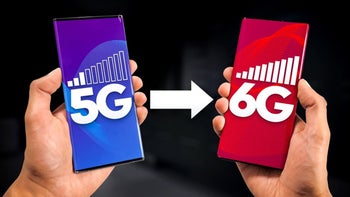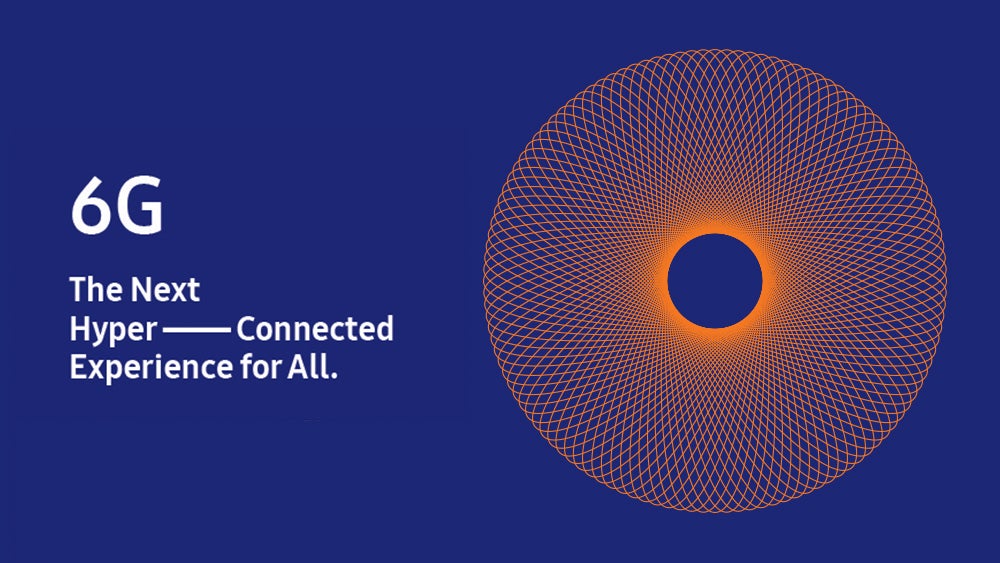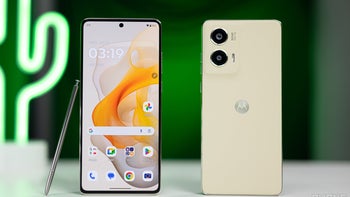Up to 100 times faster than 5G, China claims the early lead in 6G

Although we are only in the top of the first inning in the ballgame that we call 5G, it doesn't mean that there aren't some players already discussing 6G. In February 2019, then President Donald Trump disseminated a tweet that said, "I want 5G, and even 6G, technology in the United States as soon as possible. It is far more powerful, faster, and smarter than the current standard. American companies must step up their efforts, or get left behind."
China says that it has the early lead in intellectual property related to 6G
Back in November, we told you that Apple and Google had both joined "The next G Alliance" with a goal to "advance North American mobile technology leadership in 6G and beyond over the next decade, while building on the long-term evolution of 5G."
This past February, Apple posted some job listings that mentioned 6G specifically and one job listing says that those hired will be asked to "research and design next generation (6G) wireless communication systems for radio access networks" and "participate in industry/academic forums passionate about 6G technology."

With 5G in the first inning, the battle over the intellectual property of 6G has already started
The listings also explain the importance of the position by saying that "You will have the unique and rewarding opportunity to craft next generation wireless technology that will have deep impact on future Apple products. "In this role you will be at the center of a cutting-edge research group responsible for creating next generation disruptive radio access technologies over the next decade."
According to Telecoms, the China National Intellectual Property Administration (CNIPA) went through Chinese state run media last week to announce that the country has the lead in 6G related intellectual property. The CNIPA announced on World Intellectual Property Day that out of approximately 38,000 patents related to 6G worldwide, 13,449 or 35% came from China. The U.S. was second with 18% of the 6G patents.
While the U.S. and the EU have already started 6G research projects in order to make sure that one country or region doesn't have an advantage over others, CNIPA told China to "utilize its technological advantage in 5G to continue staying ahead." The CNIPA also said that China should arrange partnerships with such Japanese and Korean firms like NEC, Samsung and Mitsubishi "to reduce reliance on American and European technologies" in critical areas of 6G where China is behind.
Even though China has the global lead in 6G patents, only one company from the country cracks the top ten list. The top three companies with 6G patents worldwide are NEC, Daewoo Communications, and Mitsubishi. While Artificial Intelligence will play a large role in 6G, Chinese firms hold a whopping 75% of the 6G patents in this area.
China does have the most patents related to terahertz technology for 6G at 40%. Out of the top 10 patent holders in this area, six are Chinese universities and research firms. The two top patent holders in this category are China’s University of Electronic Science and Technology and the China Metrology University.
6G standards are years away from being finalized, but for now 6G is expected to deliver terabit speeds, up to 100 times the capacity of 5G, and coverage ranging from underwater to outer space. Features could include immersive extended reality (all real and virtual combined environments) and high-fidelity mobile holograms.
If 5G allows users to download full-length films in seconds, create new industries, support self-driving vehicles and new technologies, imagine what 6G download data speeds will be capable of if it truly runs at 100 times the download speed of 5G. And that is why the major industrialized countries are battling each other for global leadership of 5G and 6G connectivity.
Keep in mind that most of the time when discussing the future of 5G and 6G, the talk is about how the faster speeds will impact consumers. But we can't be blind to how faster wireless service could impact military powers in the world which is another reason why industrialized nations are already battling over 6G.










Things that are NOT allowed: